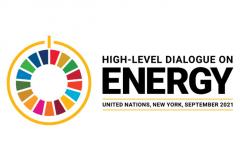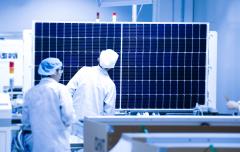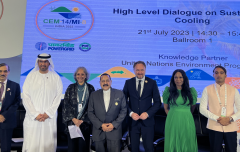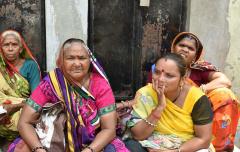Expert Working Group on Sustainable Energy in Asia and the Pacific region discussed the road to the UN High-level Dialogue on Energy
Bangkok, 31 August 2021 – The United Nations Economic and Social Commission for Asia and the Pacific (ESCAP), in collaboration with Sustainable Energy for All (SEforALL) organized a meeting of the Expert Working Group on Universal Access to Modern Energy Services, Renewable Energy, Energy Efficiency and Cleaner Use of Fossil Fuels (EWG-SDG7). The meeting discussed the upcoming High-level Dialogue on Energy that the UN Secretary-General will be convening on 24 September 2021 at the 76th UN General Assembly.
This is a landmark UN summit on energy, the first since the UN Conference on New and Renewable Sources of Energy held in Nairobi in 1981 during the global oil crisis. The upcoming Dialogue will be keenly observed by the global community given the recent IPCC 2021 report findings that the impact of climate change is unavoidable, and its severity is incumbent on action to achieve net-zero emissions by mid-century. The Dialogue also prefaces the COP26 meeting to be held in Glasgow in November 2021 which is expected to be a milestone moment for assessing global action in the wake of the alarming climate crisis and the urgency to recover better from the ongoing pandemic.
“An ambitious global effort is urgently required to accelerate existing initiatives and actions to deliver SDG7 to ensure access to affordable, reliable, sustainable, and modern energy for all by 2030. This is reinforced with a sustained and decisive effort towards achieving the global climate targets of the Paris Agreement. The Asia-Pacific region can play an important role in achieving the global goals. The High-level Dialogue presents a historic opportunity to provide transformational action on energy that aims to leave no one behind”, said Armida Salsiah Alisjahbana, United Nations Under-Secretary-General and Executive Secretary of ESCAP.
Joining the ESCAP Executive Secretary as co-chairs of the meeting were Raushan Yesbulatova, Ambassador and Permanent Representative of the Republic of Kazakhstan to ESCAP, and Premrutai Vinaiphat, Deputy Permanent Secretary of the Ministry of Energy of the Royal Thai Government.
The meeting served as a platform for ESCAP to provide member States with pertinent information to participate actively and engage in the Dialogue. Member states were also briefed by UN DESA on the recommendations from the Thematic Working Groups of the Dialogue and by SEorALL on details of the Energy Compacts. The meeting highlighted that as a voluntary tool, Energy Compacts could be flexible and fit-to-purpose for member states, sub-national authorities, and non-state actors to showcase their clean energy ambition and commitments in the upcoming Dialogue and beyond.
Brazil, China, and Nauru provided member-state perspectives on capturing their clean energy ambitions in their respective national Energy Compacts. There were also examples of public sector and private sector compacts such as NTPC from India and Google respectively. During the meeting, it was highlighted that scaling clean energy commitments at the Dialogue is only the start, and Energy Compacts will remain a continuous process integrated into milestone moments throughout the Decade of Action.
Damilola Ogunbiyi, CEO and Special Representative to the UN Secretary-General on Sustainable Energy for All noted that “the Dialogue is the beginning of a radical shift that will move the world into a new energy paradigm. This will take a whole of the world effort. I urge everyone to join forces with us in this critical year, to commit to an Energy Compact that will drive the faster achievement of SDG7 and contribute to Paris Agreement objectives”.
On behalf of the UN-Energy team that includes UN DESA, UNDP and SEforALL, ESCAP extended support to member states and the private sector that would like to engage in the Dialogue through the Energy Compacts. SEforALL emphasized that they are also available to support interested members states and non-state actors to think through innovative Energy Compacts that can highlight their forward-looking opportunities on clean energy transition and SDG7.




